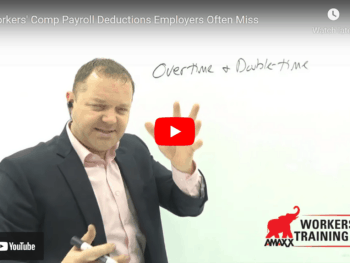Montana Commissioner of Securities and Insurance Monica Lindeen reported that workers compensation claims in the state have fallen by more than 5% during the past year.
The news comes as Montana continues its effort to abdicate from its reign as the state with the highest workers comp premium rates in the United States. (WCxKit)
The National Council on Compensation Insurance recently made a filing with the Montana Department of Securities and Insurance requesting an overall loss cost decrease of 5.6% effective July 1, 2011, according to Lindeens announcement.
Under Montana law, the NCCI analyzes industry trends, prepares workers comp insurance rate recommendations, determines the cost of proposed legislation and provides a variety of services and tools to maintain a healthy workers comp system. Private insurers in Montana adopt the loss cost and file the end rates with the commissioner’s office.
The figures released by the NCCI does not include the impact of legislation that has worked its way through Montana's Senate and House of Representatives in recent months.
Just recently, both chambers sent a bill to Gov. Brian Schweitzer, a Democrat, which would make a number of cost-cutting changes to the states workers comp. Among the changes included in H.B. 334 is a provision that would end medical benefits 60 months after the date of the injury. The bill includes a provision that would allow injured workers to appeal the end of their benefits.
The bill would also create a list of doctors that injured workers can see for treatment; as opposed to letting them request their personal doctor. The National Council on Compensation Insurance has estimated that H.B. 334 would save $84 million to $183 million in the first year alone — a drop of between 20% and 44% (BestWire, Feb. 23, 2011). (WCxKit)
The 60-month cutoff date was a major sticking point for many industry observers who said that window was too short for situations where a worker was significantly injured. Montana Rep. Scott Reichner, R-Bigfork, who introduced the bill, argued that putting a hard deadline for benefits to be cut off was the only way to ensure that "people aren't going to enter the system and never leave."
Author Robert Elliott, executive vice president, Amaxx Risks Solutions, Inc. has worked successfully for 20 years with many industries to reduce Workers Compensation costs, including airlines, healthcare, printing/publishing, pharmaceuticals, retail, hospitality and manufacturing. See www.LowerWC.com for more information. Contact:Info@ReduceYourWorkersComp.com or 860-553-6604.
WC IQ TEST: http://www.workerscompkit.com/intro/
WORK COMP CALCULATOR: http://www.LowerWC.com/calculator.php
SUBSCRIBE: Workers Comp Resource Center Newsletter
Do not use this information without independent verification. All state laws vary. You should consult with your insurance broker or agent about workers comp issues.
©2011 Amaxx Risk Solutions, Inc. All rights reserved under International Copyright Law. If you would like permission to reprint this material, contact Info@ReduceYourWorkersComp.com

























